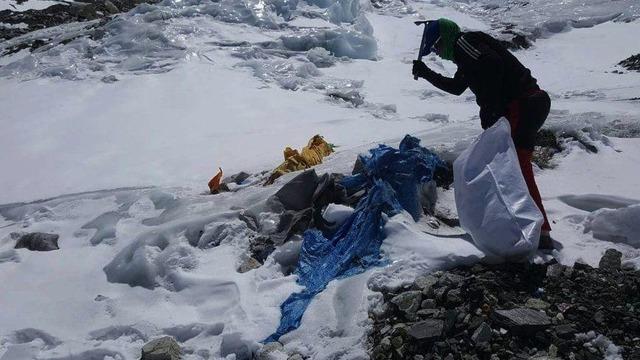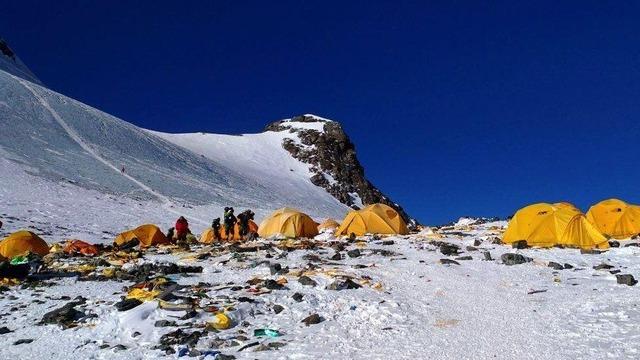Complaints about human waste have increased on Mount Everest in Nepal. According to officials, climbers will now have to clean up their own feces and bring them back to base camp. Climbers will put their feces in bags and carry them with them.
“OUR MOUNTAINS STARTED TO STINK”
“Our mountains are starting to smell,” Pasang Lhamu district mayor Mingma Sherpa told the BBC.
The municipality, which covers much of the Everest region, introduced the new rule as part of wider measures being implemented.
Due to the extreme cold, the feces left on Everest do not fully deteriorate.
“We have been receiving complaints that human feces have been seen on the rocks and some climbers have become ill. This is unacceptable and tarnishes our image,” Mingma said.
Climbers who will climb Mount Everest, the world’s highest peak, and nearby Mount Lhotse will need to purchase stool bags at base camp that will be “checked on return”.
During the climbing season, climbers spend most of their time at base camp trying to acclimate to altitude. Meanwhile, separate tents with barrels to collect feces are set up for toilet needs.
But things get even more difficult when they begin their perilous journey to climb.
Most climbers and support staff defecate in the hole they dig, but in places with less snow, defecation can be done in the open.
When climbing to the top of Mount Everest, very few people bring their feces back in biodegradable bags.
Although litter remains a major problem on Everest and other mountains in the region, the number of annual clean-up campaigns led by the Nepalese army is increasing.
“OPEN TOILET”
“Waste continues to be a big problem, especially in high-elevation camps where you cannot reach,” says Chhiring Sherpa, president of non-governmental organization Sagarmatha Pollution Control Committee (SPCC).
Although there is no official figure, his organization estimates there are around three tonnes of human excreta between camp one at the base of Everest and camp four towards the summit.
“Half of this is believed to be in the South Col, also known as the fourth camp,” says Chhiring.
Stephan Keck, a mountain guide who has organized expeditions to Everest, states that the South Col has gained a reputation as an “open latrine”.
At an altitude of 7,906 meters, South Col serves as a base for climbers trying to reach the Everest and Lhotse peaks. The terrain here is quite windy.
“There’s almost no ice and snow, so you see human feces everywhere,” Keck says.
SPCC has sourced nearly 8,000 fecal bags from the United States for an estimated 400 foreign climbers and 800 support staff for the climbing season that begins in March.

These bags contain chemicals and powders that solidify human feces and make them odorless.
It is thought that the average climber produces 250 grams of feces per day. They usually spend about two weeks in the high camps for the summit attempt.
There are also those who suggest that the application be started as a pilot project on Everest and then implemented in other mountains.
Mingma Sherpa, the first Nepali to climb all 14 mountains above eight thousand meters, said the use of such bags to manage human waste has been tried and tested in other mountains.
“Mountaineers also use these types of bags on Mount Denali (the highest peak in North America) and Antarctica, so we advocate for that as well,” said Mingma, who is also an advisor to the Nepal Mountaineering Association.
There has been criticism that Nepal’s central government has introduced many mountaineering rules in the past and has not properly enforced many of them.
“The state has always been absent from the base camps, which has led to all kinds of irregularities, including people climbing our mountains without permission,” says Pasang Lhamu mayor Mingma.
“Everything will change now. We will set up a liaison office and ensure that our new measures are implemented, including ensuring that climbers bring back their feces.”

